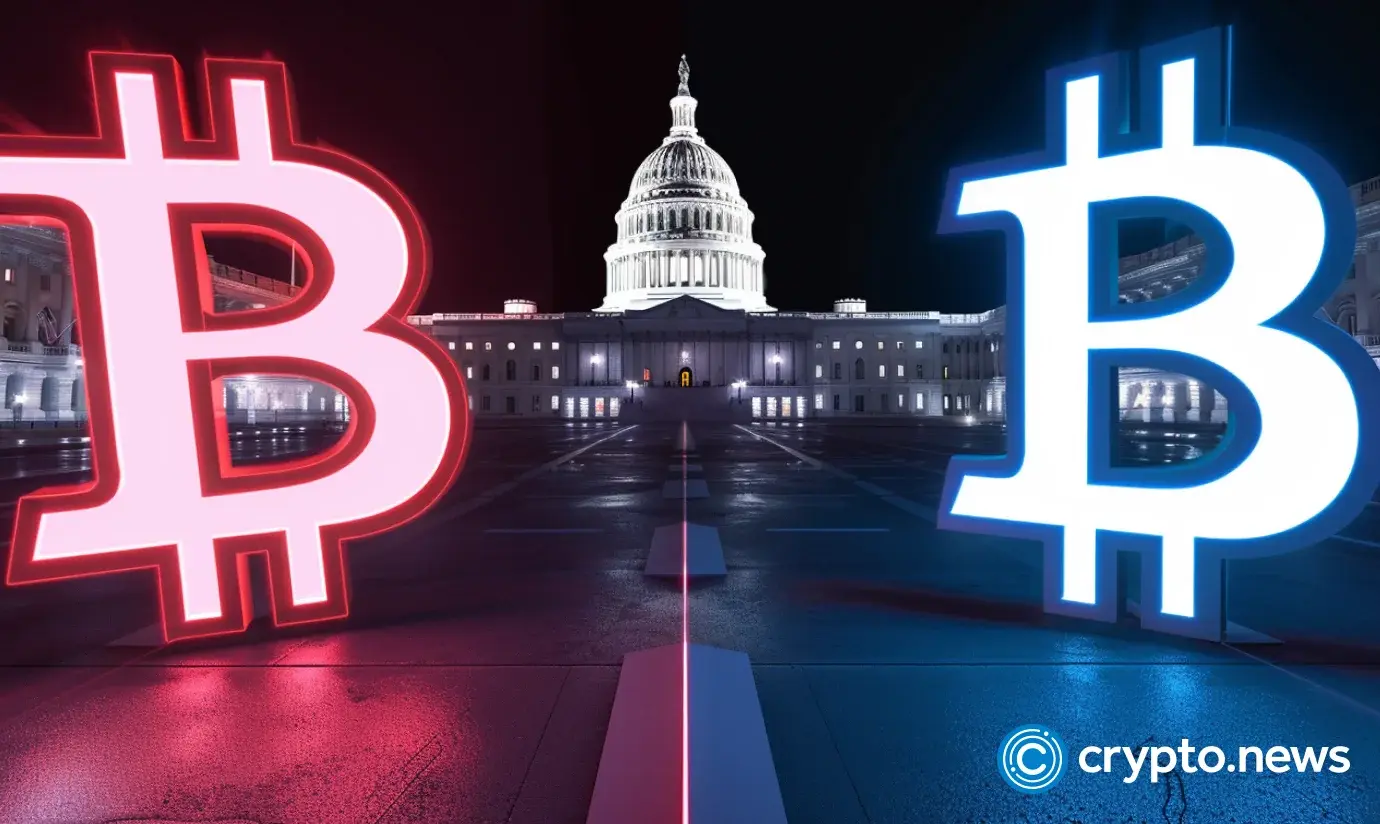2024 election showdown: will votes decide crypto’s fate?

How do the election outcomes in India and the U.S. affect global crypto policies, with India’s crypto adoption growing and the U.S. maintaining its dominance?
Table of Contents
The ongoing elections in India and upcoming elections in the U.S. could have profound implications for the crypto market, given the distinct roles both countries play in the world economy.
India, with its massive population of over 1.4 billion people, has emerged as the largest crypto hub. As of 2023, India boasts 93.5 million crypto owners, representing 6.55% of its population.
Meanwhile, the U.S., home to nearly 340 million people, has the largest crypto market by ownership percentage, with 15.56% of its population—around 52.9 million individuals—holding digital assets.
In the U.S., more than 15% of American crypto owners possess over $10,000 in crypto assets. The political influence of this group is growing, with 1 in 5 Americans now owning digital assets.
This demographic is diverse: 22% identify as Democrats, 18% as Republicans, and 22% as Independents. Additionally, 60% are Gen Z or Millennials, and 41% are minorities.
This diverse crypto voter bloc could play a key role in the 2024 elections, especially in swing states where narrow margins often decide elections.
In contrast, India’s general election in 2024 is not expected to bring immediate changes to crypto policy.
Prime Minister Narendra Modi, who is seeking a third term, is likely to continue the current restrictive stance on crypto, including the 1% tax deducted at source on transactions.
Despite the country’s rapid adoption of digital assets, crypto remains a niche issue for the majority of Indian voters, overshadowed by more pressing economic and social concerns.
Changing stance of political leaders in the U.S. about crypto
The political environment in the U.S. is experiencing a turbulent shift regarding crypto. Both former President Donald Trump and current President Joe Biden have altered their stances in ways that could dramatically influence the crypto market.
To understand these changes better, crypto.news gathered exclusive insights from industry experts Mihał Popieszalski, CEO of MatterFi; Tim Delhaes, CEO of Grindery; and Nishal Shetty, co-founder of WazirX.
Donald Trump’s presidential campaign recently announced it would begin accepting donations in crypto, marking a stark change from his previous skepticism toward digital assets.
The campaign’s fundraising page now allows any federally permissible donor to contribute using various crypto assets, including Bitcoin (BTC), Ethereum (ETH), and US Dollar Coin (USDC), as well as low-value coins like Shiba Inu (SHIB) and Dogecoin (DOGE).
This decision seems to appeal to a core group of young male voters who are increasingly likely to invest in digital assets.
Trump’s embrace of cryptocurrency isn’t entirely new. He has already received millions in cryptocurrency through his Trump Digital Trading Cards non-fungible token (NFT) projects.
Popieszalski provided insights into the political implications of this decision:
“The U.S. political climate has seen shifts over time, particularly with increasing polarization and the rise of populism. Recently, crypto has emerged as a new frontier in the political era, influencing policy discussions and campaign strategies.”
On the other hand, the Biden administration appears to be preparing for a strategic pivot on crypto regulations, potentially aligning closer with the digital asset community ahead of the November election.
This speculation follows the recent approval of a spot Ether ETF, a massive change in stance by the Securities and Exchange Commission (SEC).
Haseeb Qureshi, Managing Partner at Dragonfly, believes that Biden is likely to soften on crypto to avoid losing votes in a tight race, stating, “He doesn’t want to lose votes in a tight race over what is ultimately a minor issue to him.”
Delhaes mentioned:
“The presidential race is on such margins that candidates are trying to address all sorts of niches, including crypto enthusiasts.”
Popieszalski further commented:
“The sudden positive sentiment around spot ETH ETFs likely reflects acceptance of crypto within financial markets and regulatory bodies. Approval of such ETFs suggest that regulatory agencies are responding to political and economic pressures.”
However, this shift is not without its complexities. Delhaes noted:
“The approval of spot ETH ETFs suggests a maturation of the crypto market… However, it also raises concerns about political motives aiming to exert greater control over a decentralized market through regulatory means.”
Nishal Shetty, co-founder of WazirX, added:
“The US is definitely at an advantage in terms of strong support from political parties despite hurdles from the SEC. Crypto strategy is a strong part of the agenda of political parties in the US, unlike India where crypto policies aren’t as big a concern among voters.”
India’s influence on the crypto world
Crypto’s importance as an election issue in India is minimal. For most voters, Web3 and related technologies remain complex and largely unknown.
Even India’s steep tax on crypto transactions (1% deducted at source for each transaction) is unlikely to significantly influence the upcoming election.
Instead, pressing issues like unemployment, religious tensions, minority rights, electoral bonds, institutional independence, and agrarian policies dominate the political discourse.
Meanwhile, neither the major parties, Prime Minister Narendra Modi’s Bharatiya Janata Party (BJP) nor the Indian National Congress (INC), has mentioned cryptocurrency, blockchain, or Web3 in their manifestos.
However, this doesn’t necessarily mean they lack plans for the ecosystem. Political parties in India often use indirect language to address crypto-related topics.
For example, the BJP’s manifesto mentions educating senior citizens about digital scams and taking action against threats to digital sovereignty. The INC talks about digital ledgers for agricultural transactions and addressing cybersecurity issues that could threaten India’s digital financial infrastructure.
During Modi’s second term, his administration introduced several crypto-related policies, including a 30% tax on profits from digital asset sales, no offsetting of losses, and a 1% tax deducted at source for every transaction.
Citing ways to mitigate India’s lackluster approach, Shetty mentioned:
“Incentivising aspiring developers, institutional investors, VCs and builders of Web3 to come up with real world solutions for domestic market challenges and lowering taxation rate of digital asset ownership are some of the steps that can be taken to ensure that India is at the forefront of blockchain revolution that is currently sweeping the world.”
Meanwhile, regardless of the election outcome, India’s Web3 policies are expected to remain largely unchanged in the near future. If Modi wins, his current policies will likely continue, and any updates to crypto policy won’t be an immediate priority. The opposition, if it wins, will have other urgent issues to address first.
Shetty further added:
“India’s crypto ownership is impressive but it has a long way to go before it can be a leader in the same. The pace might not be as rapid as the community had expected but over the last couple of years, regulators have been open to two-way dialogues and discussions with industry stakeholders.
How U.S. election results could influence crypto regulations
The upcoming U.S. elections could largely impact cryptocurrency regulations, depending on whether Donald Trump or Joe Biden wins. Each administration has a different approach that could shape the future of the crypto market.
According to Popieszalski:
“A Trump administration might pursue a more crypto-friendly regulatory environment, promoting innovation and investment in the sector.”
Trump’s moves to accept crypto donations and his recent history with digital assets show his support for the industry. This approach could attract young, tech-savvy voters who are active in the crypto space.
In contrast, the Biden administration’s cautious approach seems to have reversed. The SEC’s approval of a spot Ether ETF indicates a possible softening of the administration’s stance on crypto.
Despite this, Biden’s administration will likely emphasize consumer protection and financial stability, leading to more stringent regulations.
Popieszalski notes:
“A Biden administration might emphasize consumer protection and financial stability, potentially resulting in more stringent regulations.”
Delhaes echoing Popieszalski’s words said:
The U.S. will likely maintain its influence on international crypto regulations regardless of the election outcome. If Biden wins, expect a continuation of current regulatory approaches. If Trump wins, the focus might shift to other issues, affecting the pace of international crypto regulation.”
Meanwhile, the U.S. House of Representatives’ “Financial Innovation and Technology for the 21st Century Act” reflects bipartisan support for technological innovation in the digital assets space. This bill aims to foster advancements in the crypto sector.
Shetty suggested the importance of regulatory clarity and a strong domestic Web3 ecosystem, stating:
“Indian leaders need to adopt a similar approach towards regulatory clarity irrespective of which administration comes to power. The country needs to ensure a robust domestic web3 ecosystem with special focus on empowering the youth to explore the technology and build careers in the same field to concentrate efforts in the country’s Web3 development agenda.”
Whether it’s Trump or Biden, the ripple effects will be felt worldwide. And with India watching closely, their response could set the stage for a new era in global crypto regulation.
















